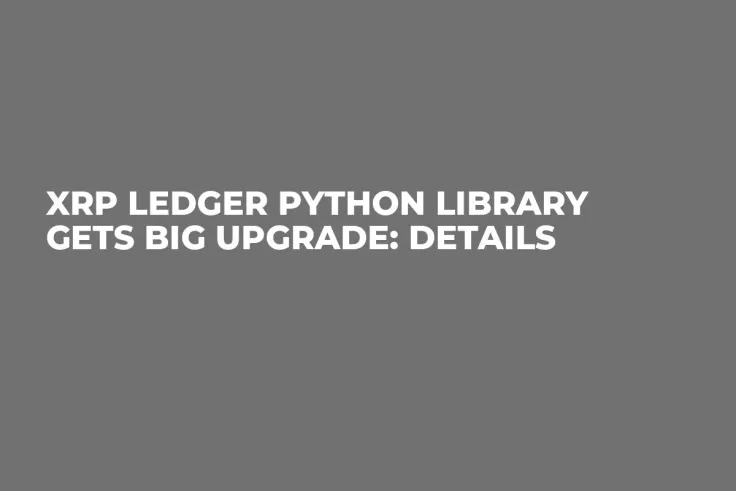
Disclaimer: The opinions expressed by our writers are their own and do not represent the views of U.Today. The financial and market information provided on U.Today is intended for informational purposes only. U.Today is not liable for any financial losses incurred while trading cryptocurrencies. Conduct your own research by contacting financial experts before making any investment decisions. We believe that all content is accurate as of the date of publication, but certain offers mentioned may no longer be available.
RippleX, the team charged with the support and development of XRP Ledger, has announced a significant upgrade to the XRP Ledger Python library, xrpl-py. In a new tweet, RippleX makes it known that a new version of the XRP Ledger Python library, xrpl-py 2.0, is out now.
xrpl-py 2.0 is out now!
— RippleX (@RippleXDev) July 5, 2023
🔑 The Wallet class has been revamped to let you keep your keys in whatever format you want
✅ You can now autofill, sign, and submit your transactions all in one function "submit_and_wait"
Find out what's new and how to migrate. https://t.co/sptGvHp5IX?from=article-links
xrpl-py is a pure Python implementation for interacting with the XRP Ledger. The xrpl-py library simplifies the hardest parts of XRP Ledger interaction, like serialization and transaction signing, by providing native Python methods and models for XRP Ledger transactions and core server API (rippled) objects.
Several improvements and features
The new version 2.0.0 of xrpl-py brings various improvements and novel features, particularly to the wallet class. Breaking changes include simplified signing and submitting functions and revamping the wallet class.
Previously, sending a transaction required the use of three separate functions, which resulted in a poor onboarding experience. These processes have now been consolidated into a single function that integrates these stages and adheres to the syntax used.
The revamping of the wallet has been done to make managing user keys simpler. As part of that, an unnecessary sequence field has been removed, allowing users to build a wallet with any form their keys are in. This includes secrets, public/private key pairings, entropy and secret numbers.
Some deprecated functions were also removed; these include four functions that simply wrapped a rippled request and were thus removed as part of the release.
Last month, RippleX announced that a new XRP Ledger version 1.11.0, which is version 1.11.0 of rippled - the reference server implementation of the XRP Ledger protocol - was now available. Among the significant improvements brought by this release is a decrease in memory usage.
 Vladislav Sopov
Vladislav Sopov Dan Burgin
Dan Burgin